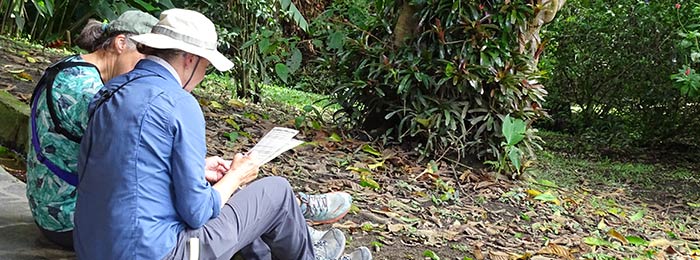Entry & Exit Requirements
U.S. citizens must have a valid passport to enter Ecuador. Passports must be valid for at least six months after the date of departure.
For visits fewer than 90 days, visas will be issued upon arrival in Ecuador. Tourists may be required to provide evidence of return or onwards travel.
If you are not traveling with a U.S. passport, please check with the Embassy of Ecuador for the requirements based on your nationality.
Health Information
IMMUNIZATIONS
The Centers for Disease Control recommends that all travelers be up to date on routine vaccinations such as measles-mumps-rubella (MMR) vaccine, diphtheria-pertussis-tetanus vaccine, varicella (chicken pox) vaccine, and your yearly flu shot before every trip.
There are no vaccinations required for entry into Ecuador (unless you are traveling from Brazil, Democratic Republic of the Congo, or Uganda, in which case proof of yellow fever vaccine is required).
Though not required for entry, the CDC recommends inoculation against hepatitis A, hepatitis B, and typhoid for most unvaccinated travelers to Ecuador.
Please consult your physician for additional information and recommendations based on your individual circumstances.
MALARIA
Malaria is not known to be present in Guayaquil or Quito or in the Galápagos Islands. If you are concerned about malaria prevention, please consult your physician.
Other Insect-borne Illnesses
Other insect-borne illnesses are known to occur on mainland Ecuador, including dengue fever, leishmaniasis, Zika virus, and others. The CDC recommends that travelers to Ecuador protect themselves against insect bites: Cover exposed skin with lightweight, long-sleeved shirts and pants and use an insect repellent containing an active ingredient like DEET or picaridin. Apply sunscreen first, followed by the repellent (preferably 20 minutes later).
As a precaution, the CDC advises women who are pregnant to consider postponing travel to any area where Zika virus transmission is ongoing.
SEA SICKNESS
If you’re prone to feeling queasy, we suggest you consult your physician for advice on the best ways to prevent motion sickness. We recommend that you avoid showering when the boat is in motion and remain cautious of activities while passing through rocky waters.
SUN EXPOSURE
The effects of the sun can be damaging to the eyes and skin. Spending time outdoors exposes you to the sun’s harmful ultraviolet (UV) rays, even on cloudy days. To protect yourself from the sun, use a broad spectrum sunscreen of at least SPF 15, protect skin with clothing, wear a wide-brimmed hat and sunglasses, and drink plenty of fluids.
PHYSICAL FITNESS REQUIREMENTS
Visitors to the Galápagos Islands should be in good health and capable of walking over rocky, uneven, and potentially slippery terrain. Regardless of your physical stamina, bringing a walking stick will help maintain your balance.
Respiratory Illness Protocols
Please review our Respiratory Illness Protocols page, which explains our policy and procedures if you or another traveler should develop symptoms of a respiratory illness during your trip. Your participation in a Holbrook Travel program indicates that you are in agreement with these protocols.
Respiratory Illness Protocols
Please review our Respiratory Illness Protocols page, which explains our policy and procedures if you or another traveler should develop symptoms of a respiratory illness during your trip. Your participation in a Holbrook Travel program indicates that you are in agreement with these protocols.
















